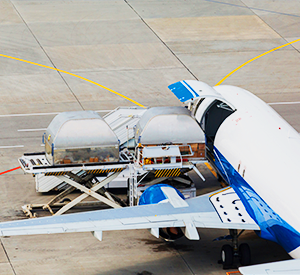Have you heard that U.S. Customs & Border Protection (CBP), will begin accepting applications from exporters for participation in the Customs-Trade Partnership Against Terrorism (C-TPAT) program? If your company is already a certified C-TPAT importer in good standing, your company is well on its way to becoming a C-TPAT exporter and can apply for the exporter program – simply update your profile in the portal.
The C-TPAT exporter program provides the opportunity to partner with CBP to get a head start in ensuring your overall corporate compliance program is up to par and receive some additional benefits in the process, including:
-
Increased facilitation of exports from foreign partners located in countries that have established Mutual Recognition Arrangements with the United States
-
The ability to market the fact that C-TPAT certified cargo is secure
-
Prioritized processing examinations over non-C-TPAT parties, reduced rates and times
-
Increased coordination with C-TPAT partners during shipping disruptions
-
Individually-assigned C-TPAT Supply Chain Security Specialist (SCSS) available to assist with supply chain security inquiries
-
Access to C-TPAT trainings and seminar and various multi-media supply chain materials
-
Use of C-TPAT common standards and security requirements that facilitate international trade by reducing the duplication of procedures
Companies (including C-TPAT importers) that wish to participate in the C-TPAT Exporter program must meet with the program’s definition of an Exporter. CBP defines an exporter as a “person or company who, as the principal party in interest (P.P.I.) in the export transaction, has the power and responsibility for determining and controlling the sending of the items out of the United States.” If you are an exporter you should already be familiar with the terms “P.P.I and/or U.S.P.P.I.”! So I won’t elaborate.
However, in addition to meeting the definition of a “P.P.I.” the company must also:
-
Be an active U.S. exporter out of the United States;
-
Have a business office staffed in the United States;
-
Have a documentable Employee Identification Number (EIN) or Dun & Bradstreet (DUNS) number;
-
Have a documented export security program with a designated officer or manager who acts as the C-TPAT program main point of contact (with an alternate point of contact should the designated person be unavailable);
-
Commit to maintaining the C-TPAT supply chain security criteria as outlined in the C-TPAT Exporter agreement;
-
Create and provide CBP with a C-TPAT supply chain security profile that identifies how the exporter will meet, maintain, and enhance internal policy to meet the C-TPAT Exporter security criteria; and
-
In order to be eligible the exporter must have an acceptable level of compliance for export reporting for the latest 12-month period and be in good standing with U.S. regulatory bodies.
CBP is currently working on implementing an automated process to accept applications. When the updates to the C-TPAT web are completed, CBP will begin to accept C-TPAT Exporter Entity applications. Additional information regarding the exporter application process will be provided through CBP’s C-TPAT web portal, email system for current C-TPAT members and on CBP’s website at: http://www.cbp.gov/trade/trade-community





